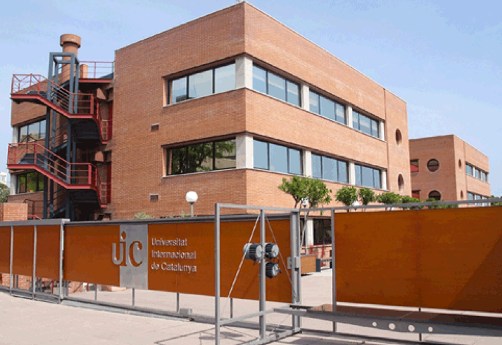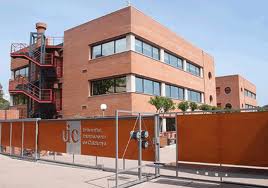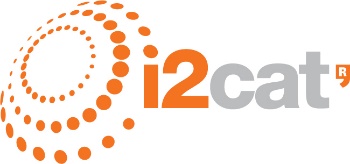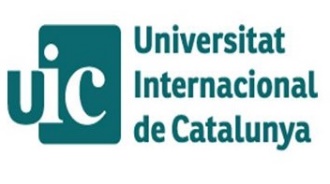|
Digital meets Culture https://www.digitalmeetsculture.net/article/next-riches-workshop-building-the-projects-foundation-2/ Export date: Thu Feb 19 1:41:38 2026 / +0000 GMT |
Next RICHES workshop: "Building the project's foundation"
Barcelona's workshop enabled all participants to: - Elaborate and agree on a Taxonomy of Terms and Definitions which will support the project's research. - Share knowledge and enrich debate through the Network of Common Interest and its groups. - Develop a framework of understanding of copyright and IPR laws as they relate to CH practice in the digital. The Workshop was addressed to: • Cultural ministries of member states within and beyond the project partnership; • Regional, national and state authorities; • CH organizations; • AHSS (Arts, Humanities and Social-Sciences) experts, researchers and students; • Public administrations; • SMEs working within the digital cultural economy; • Industrial associations and organizations dealing with creative industries; • Citizens. VENUE AND DATE 13 May 2014 from 9:00 AM to 4:30 PM (CEST) UIC - Universitat Internacional de Catalunya, 22 Carrer Inmaculada, 08017 Barcelona, Spain WORKSHOP PROGRAMME: 09.00 –09.30 Workshop Registration 09.30–09.45 Welcome & introduction to the event Artur Serra, Deputy Director at i2Cat Foundation and Dr. Teresa Vallès, Dean at the Faculty of Humanities, Universitat Internacional de Catalunya (UIC) 09.45–10.15 Introduction to RICHES Project Neil Forbes, Project Coordinator. (Professor of International History at Coventry University, Coventry's Director of Research) 10.15-10.30 Establishing the RICHES conceptual framework 10.30-11.00 Coffee/Tea break 11.00-13.00 Workshops/discussion areas 1. General/common terms: This global and common field of definitions is basic to identify the existing practices in the domain of ICT for digital CH and boost new research on the consequences of the introduction of new digital practices and their impact/change on issues such as identity, creativity, curatorship, etc. 2. Understanding the context of change for tangible and intangible CH: An agreed set of definitions will further develop the research on the context of change in which analogue CH is held, preserved, curated and accessed digitally. This is particularly relevant when researching how digital practices are transforming the traditional CH practices of cultural institutions. 3. Digital copyrights framework: Copyright law is likely to be a factor in the dissemination and exploitation of many of the project's research outputs, especially by those working within the digital CH sector. Copyrights laws developed in the analogue era are now causing challenges in the era of the digital. A full understanding of each term is vital to agree on a new route-mapping in this area. 4. Visualization and Interaction, exhibition of digital heritage and digital art. Digital Presentation & Output: Understanding the new technologies and the changes in the process of distribution, circulation, creation and sharing of CH and the practices in which CH is revaluated and reinvigorated. 5. Digital Cultural Heritage: Understanding how the various CH institutions (national, public, research, private) are now implementing systems to manage the different types of data (e-books, online catalogues, digital libraries, metadata records) and their means in order to respond to current and new users demands. 6. Role of CH in European Social development: This framework of definitions will help to best understand and explore the impact on the relationship among CH, citizens, civil society, territories and communities. This will contribute to identify further novel directions for digital CH in order to contribute to social cohesion, inclusion and represent multicultural practices. 7. Impact of CH on EU economic development: Defining the many factors and “actors” that constitute the changing context of the CH in the economic field, in order to recognize their impact on employment, new economic strategies and alliances in the EU. This framework of definitions will further help to identify practices, methodologies and structures that can be applied to CH in order to contribute to economic development in Europe. 13.00-14.30 Lunch 14.30-16.00 Community discussion & conclusions The chairmen / representatives of the discussion sessions shared their agreed definitions for a final discussion open to all participants in order to validate all of them. 16.00-16.30 Closing Remarks WORKSHOP DISCUSSION SESSIONS The open-to-all workshops and discussion panels brought together RICHES partners representatives, key researchers, professionals, academics, students from the heritage as well the ICT domain in the state-of-the-art area, set an overall understanding of each themes, contributed to further develop each area of research and helped establishing a larger research community beyond the area. Participants were asked to register to one of the following 7 proposed discussion sessions according to their field of expertise / practice. Each area of discussion had a designated representative/chairman whose mission was to conduct the discussion, coordinate the session (ensuring that timings are respected), record the contributions and deliver final definitions during the conclusion phase of the workshop's programme. Each 7 session of research should contribute to determining a route map and future global trends related to each field/terms. REGISTRATION
Digital technologies now permeate all of society, compelling us to rethink and ask questions such: how can CH institutions renew and remake themselves? How should an increasingly diverse society use our CH? How may the move from analogue to digital represent a shift from traditional hierarchies of CH to more fluid, decentred practices? How, then, can the EU citizen, alone or as part of a community, play a vital co-creative role? What are the limitations of new technologies in representing and promoting CH? How can CH become closer to its audiences of innovators, skilled makers, curators, artists, economic actors? How can CH be a force in the new EU economy?
Download the programme For more information, please visit the Project website
|
 The workshop, celebrated on May 13th at The Universitat Internacional de Catalunya (UIC) Barcelona's Campus, served as the foundation of the
The workshop, celebrated on May 13th at The Universitat Internacional de Catalunya (UIC) Barcelona's Campus, served as the foundation of the  RICHES (Renewal, innovation & Change: Heritage and European Society) is a research project about change: about the decentring of culture and cultural heritage away from institutional structures towards the individual and about the questions which the advent of digital technologies is posing in relation to how we understand, collect and make available Europe's cultural heritage (CH).
RICHES (Renewal, innovation & Change: Heritage and European Society) is a research project about change: about the decentring of culture and cultural heritage away from institutional structures towards the individual and about the questions which the advent of digital technologies is posing in relation to how we understand, collect and make available Europe's cultural heritage (CH). With this event, i2Cat and The Universitat Internacional de Catalunya (UIC) joined forces to bridge the gap between the world of change in which the CH is reinventing itself, the academic community (professors and researchers) and the alumni (soon to be the next generation of cultural managers worldwide). In addition, the event was a unique opportunity to disseminate and promote RICHES project amongst researchers, educators, scientists, industry professionals and policy makers and the new strategies and fields of research taking place in the European context.
With this event, i2Cat and The Universitat Internacional de Catalunya (UIC) joined forces to bridge the gap between the world of change in which the CH is reinventing itself, the academic community (professors and researchers) and the alumni (soon to be the next generation of cultural managers worldwide). In addition, the event was a unique opportunity to disseminate and promote RICHES project amongst researchers, educators, scientists, industry professionals and policy makers and the new strategies and fields of research taking place in the European context. RICHES on Twitter: #richesEU
RICHES on Twitter: #richesEU